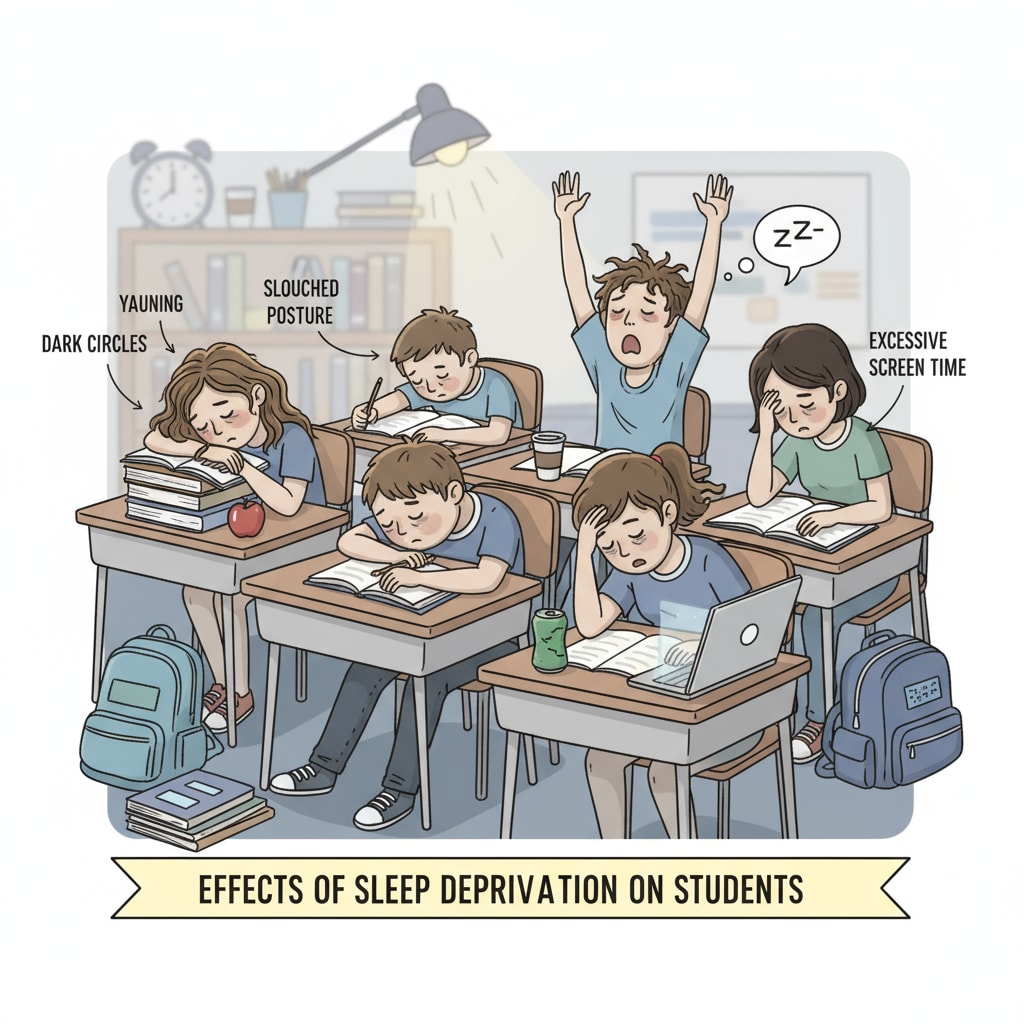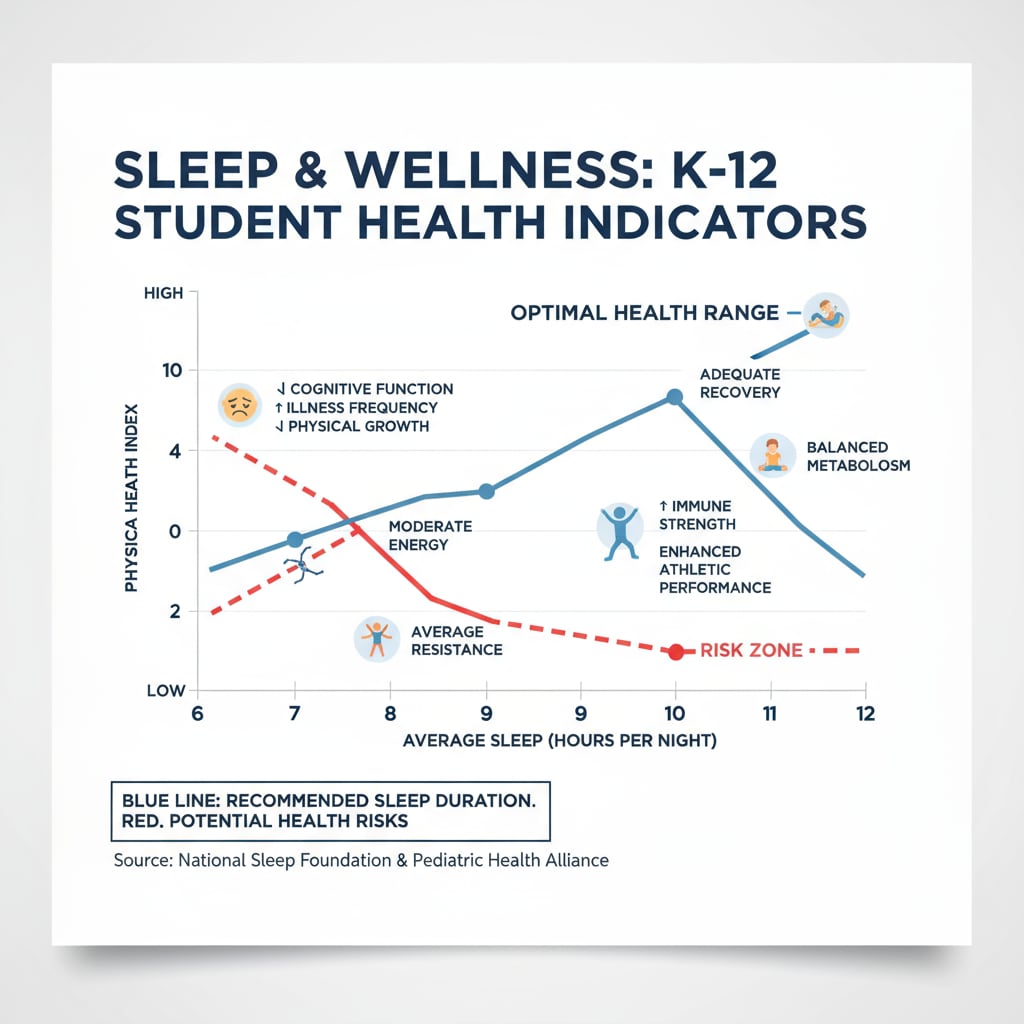Sleep, school stress, and mental health are intertwined aspects that significantly impact K12 students. In today’s fast-paced educational environment, students often face a mountain of academic pressure, which can take a toll on their sleep quality and overall well-being. Understanding the crucial role of sleep in this equation is vital for parents, educators, and students themselves.

The Link Between Sleep and Physical Health
Sleep is not just a time for the body to rest; it is a vital process for growth and development, especially for K12 students. During sleep, the body releases growth hormones that are essential for bone and muscle development. A lack of proper sleep can hinder this process, potentially affecting a student’s height and overall physical strength. For example, according to Britannica, children and adolescents need more sleep than adults to support their rapid growth. In addition, sleep plays a crucial role in strengthening the immune system. When students get enough sleep, their bodies are better equipped to fight off illnesses, keeping them healthy and able to focus on their studies.

Sleep and Cognitive Function
Cognitive function is another area where sleep has a profound impact. Adequate sleep enhances memory consolidation, attention span, and problem-solving abilities. When students are well-rested, they can absorb information more effectively in the classroom. Research from Wikipedia has shown that sleep-deprived students often struggle with tasks that require concentration and critical thinking. This can lead to lower academic performance and increased stress levels. Therefore, ensuring sufficient sleep is essential for students to reach their full cognitive potential.
Mental health is closely tied to sleep as well. Lack of sleep can trigger mood swings, anxiety, and depression in K12 students. When students are unable to get the rest they need, they may become irritable, withdrawn, or overly stressed. These mental health issues can further exacerbate the problem of sleep deprivation, creating a vicious cycle. By prioritizing sleep, students can better manage their emotions and maintain a positive mental state.
Readability guidance: As we’ve seen, sleep is integral to K12 students’ physical health, cognitive function, and mental well-being. Parents and educators should work together to help students understand the importance of sleep and create an environment that supports healthy sleep habits. By doing so, we can empower students to face the challenges of school with resilience and vitality.


